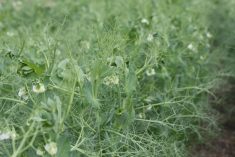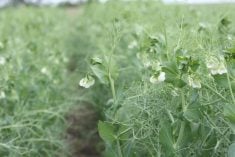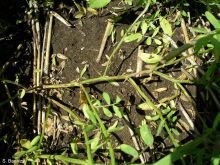WASHINGTON, D.C. – Oregano extract added to sausages, cold cuts and other ready-to-eat meat shows promise in reducing the risk of deadly listeria, according to a U.S. meat industry group.
Researchers are experimenting with the seasoning in an effort to help U.S. meat plants prevent listeria contamination.
The researchers are also dipping meat in a calcium sulfate solution and are examining stronger floor drain cleaners.
Listeria thrives in cool, moist conditions like refrigerators and floor drains, making it one of the most difficult food contaminants to eliminate.
Read Also

Volunteers help exotic animal farm rebuild
Exotic animal farm loses beloved camel and pony to huge hail storm that gripped the Brooks, Alta. area as a community member starts a fundraiser to help the family recover from the financial and emotional damage.
It can be fatal to the elderly, those with weak immune systems and unborn babies.
Pilgrim’s Pride Corp., the nation’s third-largest poultry producer, recalled more than 12 million kilograms of ready-to-eat chicken and turkey products last October after inspectors detected listeria in the plant’s floor drains.
Federal health officials linked the company’s poultry to a listeria outbreak that killed eight people and sickened 45, mostly in the northeastern United States.
The American Meat Institute Foundation, a group funded by U.S. meat companies, held a news conference to introduce techniques being tested.
One of the most promising approaches involves small amounts of oregano extracts added to meat.
The herb significantly slows the growth of listeria.
“These are initial results, which are very promising,” Kalidas Shetty, a University of Massachusetts researcher, told reporters at a news conference.
The treatment, which is still a year away from commercial use, would cost meat companies less than 11 cents per kg to use, Shetty estimated.
One concern is how to dilute the flavour of oregano extract so it does not overpower the meat’s taste, he said.
“We can’t totally eliminate the flavour because some intensity of flavour is linked to the compounds that are inhibitory” to listeria growth, he said.
Another technique being tested involves dipping hot dogs into a calcium sulfate solution, then packaging and refrigerating them for three months to duplicate conditions in grocery stores.
Preliminary tests show hot dogs contaminated with listeria and then treated with the solution “reduced the listeria down to levels that we could not detect,” said Jimmy Keeton, a researcher with Texas A&M University.
The treatment did not have a major effect on the flavour or the chemical composition of the hot dogs.
A third approach may involve using lactic acid and “good bacteria” to kill listeria inside the floor drains of meat plants. Although plants routinely scrub floors and equipment, some listeria can cling to the inside of floor drains.
“The concept is primarily to control the organism in the environment,” said Michael Doyle, a food scientist with the University of Georgia.
“If we can control this organism in the environment, and particularly in floor drains, the likelihood of product being contaminated is greatly reduced.”
The treatment is at least two years away from use by meat plants, Doyle said.
















